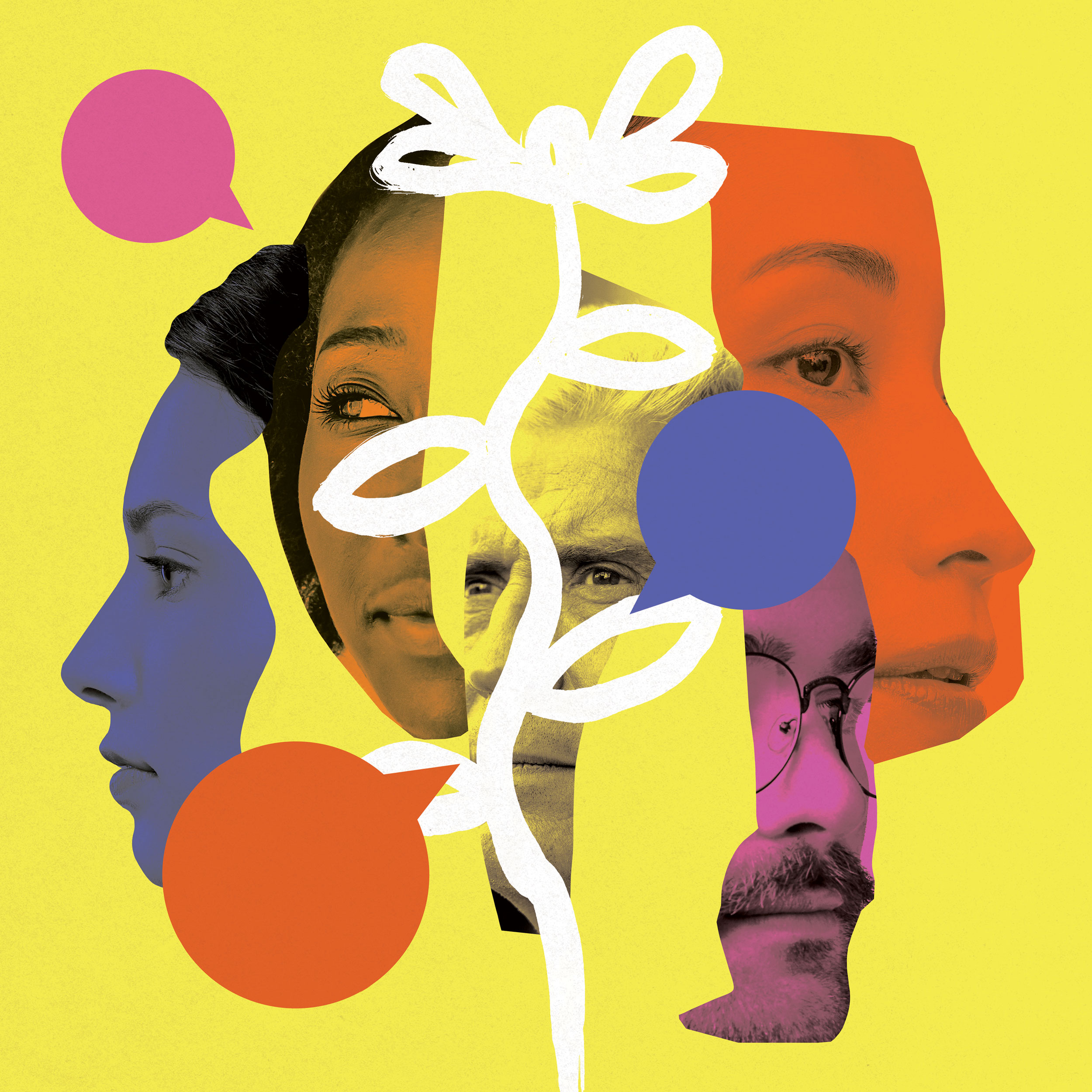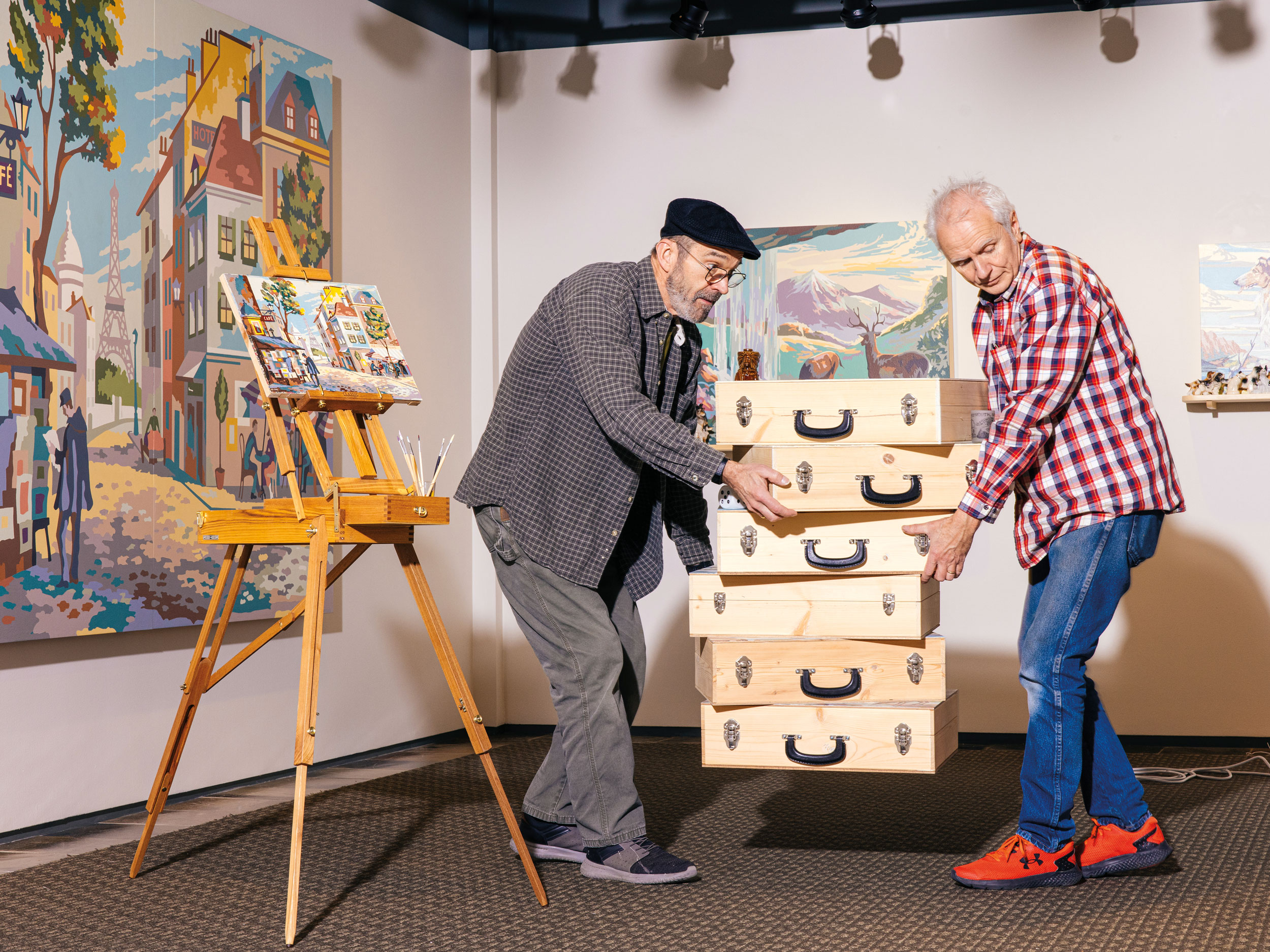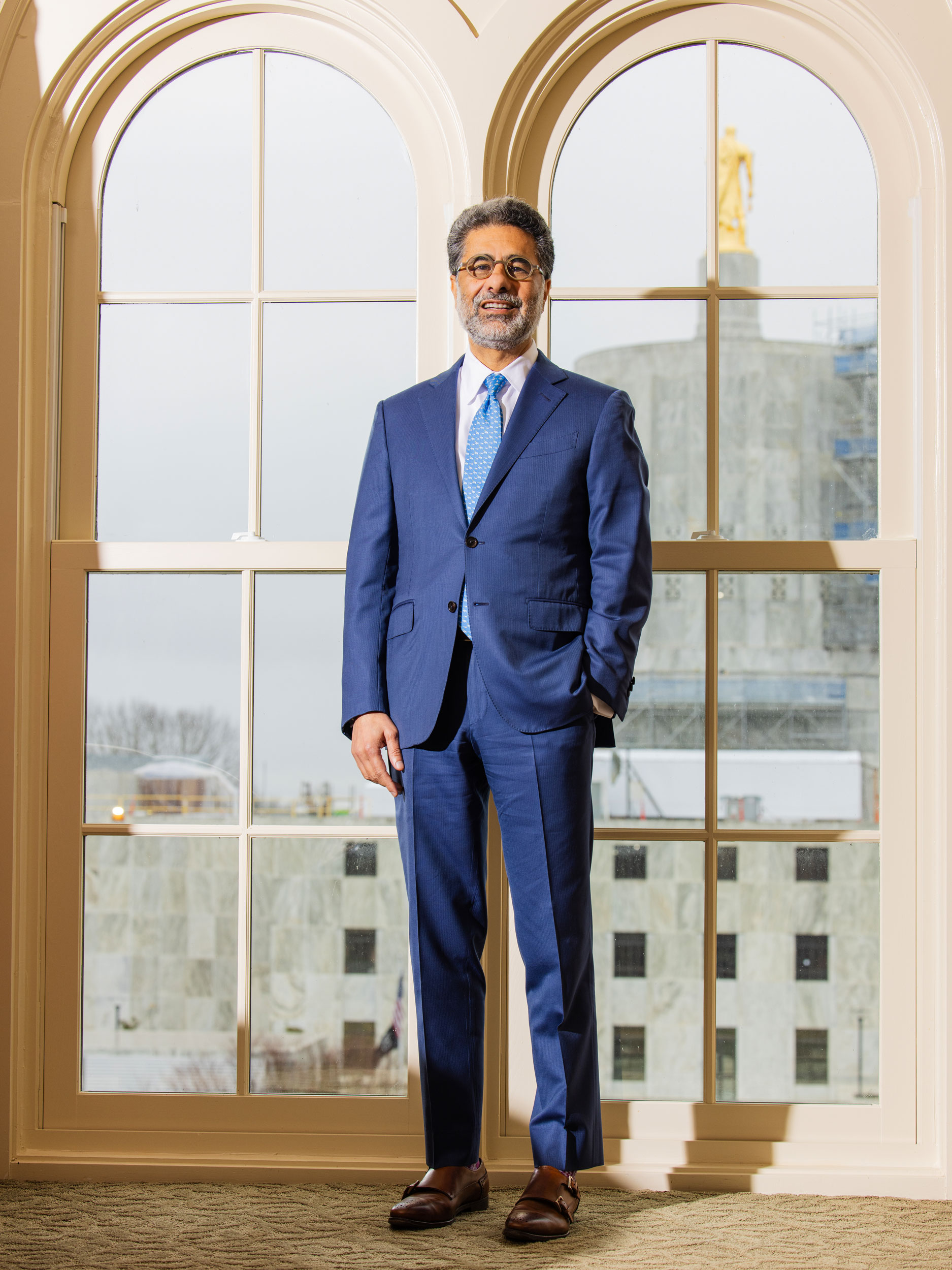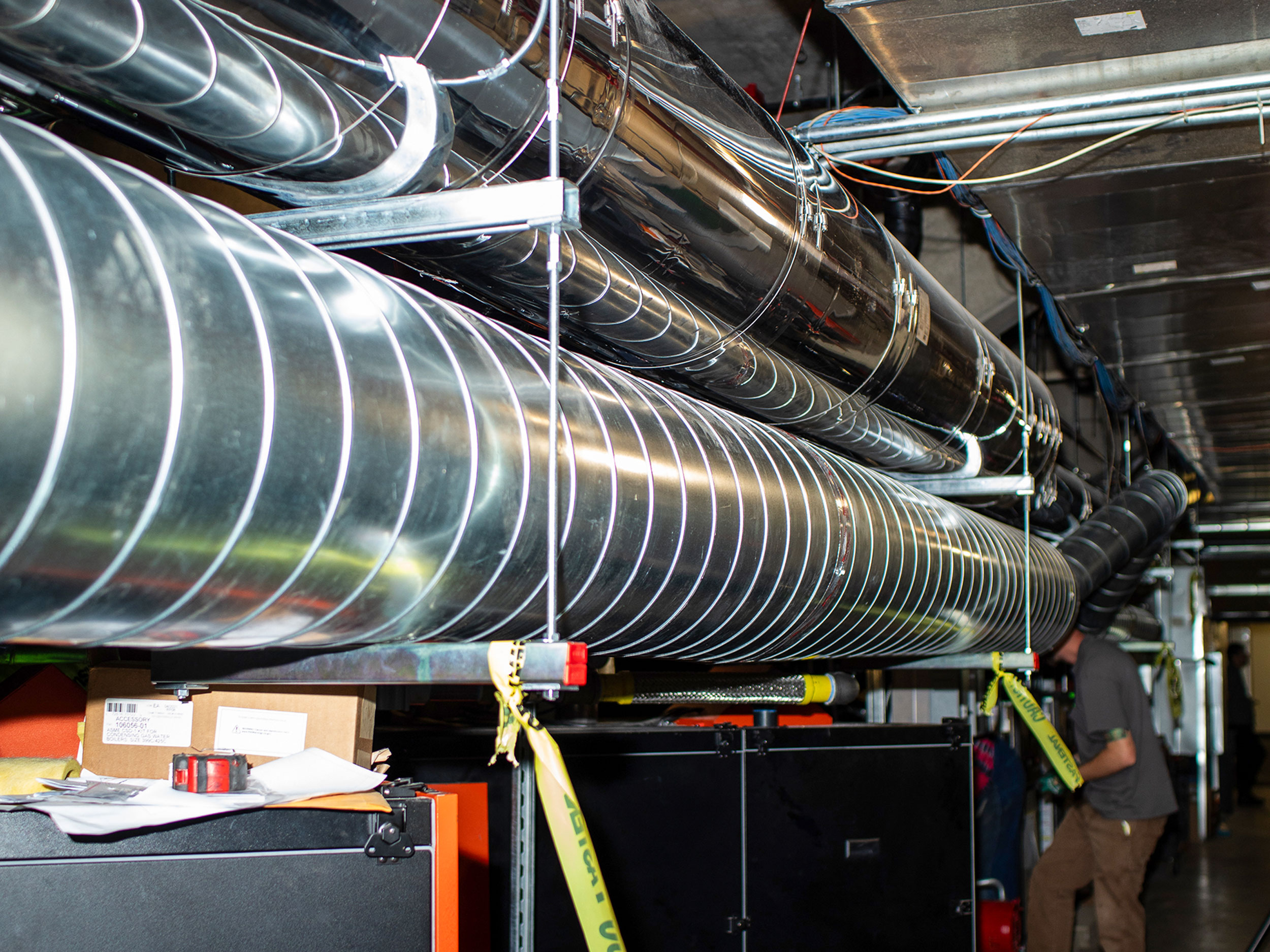
When Mira Karthik BA’24 first arrived at Willamette from her hometown in the San Francisco Bay Area, she had a goal to someday work in politics.
“But the only version I knew was filled with polarization,” she says. “I wanted to jump in and fight for what matters to me—and not have to understand all sides. I was interested in my version of the truth.”
Today, Karthik is president of the student body and a double major in politics, policy, law, and ethics and Spanish. She’s as interested as ever in politics, but she’s changed the lens through which she views it. Learning to understand all sides, she now believes, is one of the most important skills an aspiring public servant can develop. “The ability to have difficult conversations,” she says, “is at the core of strengthening democracy.”
Karthik came to this conclusion through her participation in “The Conversation Project,” a two-semester course for which she now serves as a research associate. The course was created by professors Wendy Petersen-Boring BA’89 and David Gutterman as a way to cultivate conversation across differences.
Petersen-Boring is an associate professor of history, religious studies, and women’s and gender studies. Gutterman is a professor of politics, policy, law, and ethics. Both had noticed a deterioration in conversation in the classroom beginning with the 2016 presidential election. Students seemed hesitant to ask questions and to engage with differing opinions. This mirrored the climate of the country at large during that election and in the years that followed. The divisiveness only deepened during the pandemic, giving way to a level of loneliness that most living Americans theretofore couldn’t have contemplated. Even when the worst of the pandemic subsided, for many people the loneliness and sense of divisiveness did not.
In fact, according to a July 2023 Pew Research study, when asked to describe the state of US politics, Americans chose words such as “divisive,” “polarized,” “broken,” and “dysfunctional.” Research from the Carnegie Endowment for International Peace draws a correlation between polarization and a decline in democracy.

Kerry Tymchuk BA’81, JD’84, has witnessed first-hand a rise in polarization. His career in public service has included stints as director of speechwriting for US Secretary of Labor Elizabeth Dole during the George H.W. Bush Administration, director of speech-writing and legal counsel for then-US Senator Bob Dole, and Oregon chief of staff to then-US Senator Gordon Smith. He is now executive director of the Oregon Historical Society.
“Americans have always had differences and enjoyed debates,” Tymchuk says. “That’s part of what makes us Americans! What has changed, however, is the increasing vitriol and grade-school playground’s name-calling that has infested our politics. Civility and decency are almost endangered species in the public square. There’s a lot of blame to go around—social media certainly deserves a good share—but the reality is that we must expect better behavior from our elected officials, and from ourselves.”
Tobias Read BA’97 is treasurer of the State of Oregon and a candidate for Oregon’s secretary of state. He served five terms as an Oregon state legislator, and in 2022, he ran in the Democratic primary for governor—all to say he’s had his share of conversations in which not everyone agrees. When talking with voters, Read said he uses the concept of a tree to help ground the discussion. “We often get stuck on debates about individual leaves. I say, ‘Let’s start at the roots with our values and see whether we can agree on those.’ Then we get to the trunk: the trunk represents our goals. The branches are policies, and leaves are implementation of individual policies.”
Read doesn’t see it as inevitable that we are highly divided. “By showing up in uncomfortable places we can push against the results of being isolated,” he says, citing the 2020 bestseller Humankind: A Hopeful History, by Rutger Bregman, which suggests that, in Read’s words, “interacting with each other is the secret to our survival.”
For her part, Karthik noticed in her politics classes that students who’d taken part in “The Conversation Project” were able to “ask more questions, be more present in the space, and interact in ways that are more meaningful and fulfilling. It’s something you bring with you and use in everything you do.”
eyond politics, there are important reasons to nurture conversation. Much study has been done on the crises of loneliness, polarization, and isolation in the nation today. US Surgeon General Vivek Murthy escalated the dialogue when he released an advisory last year calling on Americans to rebuild social connections. The advisory warns, “Loneliness and isolation represent profound threats to our health and well-being.” He wrote in the New York Times that “rebuilding social connection must be a top public health priority for our nation.”
“We often get stuck on debates about individual leaves. I say, ‘Let’s start at the roots with our values and see whether we can agree on those.’ ”
At Willamette, work to build social connection is frequent and ongoing. Tommy Van Cleave, assistant dean for civic engagement, points to a partnership with the City of Salem’s Center 50+, in which student volunteers coordinate dinners between local senior citizens and the larger Salem community, including students. Terry Sherman BS’25 describes conversations he’s had during these dinners as life-changing. A biology major from Lake Charles, Louisiana, he took part in the dinners as a way to combat isolation. “My mom passed away recently,” he says. “She was isolated and by herself. If you have somebody to watch your back, it makes a huge difference. If she’d had somebody to check in on her every few days or so, it might’ve helped her.”
Rev. I. Pearl Player, who is chaplain, director of spiritual and religious life, and an instructor of religious studies at Willamette, is experienced with difficult and uncomfortable conversations. She’s found that a major barrier to having a lot of conversations—difficult and otherwise—is what she calls “our innate inability to actually listen to each other.” Instead of listening fully, she’s noticed, “we’re listening for keywords while simultaneously forming our response.”
Player advises a different conversational technique. “If we share in such a way that we say to each other, ‘This is my experience,’ then the listener is prepared. Keeping it very close to ‘I,’ as in, ‘This is what I believe,’ versus ‘This is the truth,’ makes it a much more welcoming space.” She teaches about deep listening, a practice of giving attention to one’s thoughts and reactions while staying focused on the meaning of what is being heard. This is in contrast to our default way of listening that is reactive and focused on formulating our response. “The conversation goes slowly, but it goes much deeper,” Player says. “This is where you give space for healing, agreeing to disagree.”
This is something each of us can practice, both for our own well-being and in the broader fight against isolation and polarization—one person to another, going beyond the usual circles and simpatico topics to where conversation is least anticipated and most uncomfortable, all in service to each other, and to democracy.
••
Shelly Strom is a longtime Portland-based journalist.



